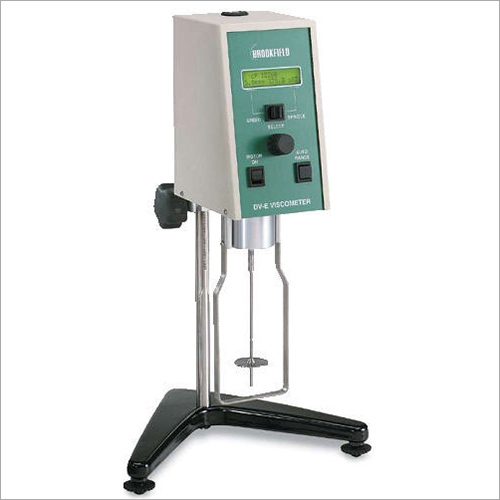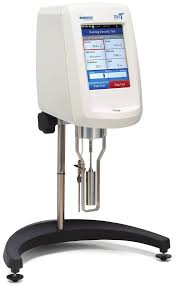Viscometer Manufacturer
Features :
- Low-cost digital Viscosity Meter
- Easy to use Flip a switch Turn a knob
- Temperature off-set capability to ±5°C
- 7” Touch-Screen Display
- Wide Speed Range: up to 250 rpm
- Rotating Spring Less Technology
- Robust Ball Bearing Suspension
- SS316 Spindles
- Direct Measure with Time to Stop
- Built-in USER Mode and Lock Mode
- Built-in USB Port for Data Transfer
- Displays Viscosity, Speed, Torque, Shear Stress, Time, and Temperature
- Units: cP (Centipoise), MPa.s/Pa.s
- Auto Range Min. and Max. Viscosity
- Multi-Viscometer Range (RV, HA-5HB, KU) in 1 Viscometer

Digital Viscometer
- Delivery Time:4-5 Week
- Voltage:240 Volt (v)
- Machine Weight:10-15 Kilograms (kg)
- Material:Metal
- Product Type:Viscometer
- Power Supply:Electric
- Color:White
- Usage:For Lab
Viscometer Manufacturer in Delhi
Effem Technologies is a leading manufacturer, supplier, and exporter of viscometers in New Delhi, India. Our rotating viscosity meters are frequently used for measuring the consistency of a wide range of fluids, including food, beverages, oils, paint, glue, petrol, and cosmetics. Our items are offered at competitive pricing and are well-liked in the market.
Principles of Brookfield Viscometer
An essential tool for measuring viscosity, the Brookfield Viscometer establishes the benchmark for fluid characterization. It accurately determines a substance’s resistance to flow by using the rotational viscometry concept, providing important information about the consistency and quality of the substance. This tool, which is widely used in the food, cosmetics, and pharmaceutical industries, guarantees product quality control. It is essential for production, research, and development operations due to its dependable data output and user-friendly interface. The Brookfield Viscometer is still a reliable instrument that helps businesses formulate products to perfection, meet strict quality requirements, and advance fluid dynamics innovation.

